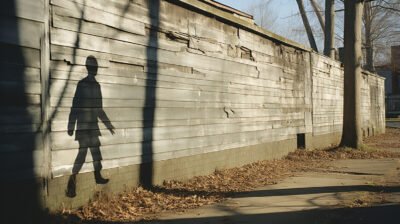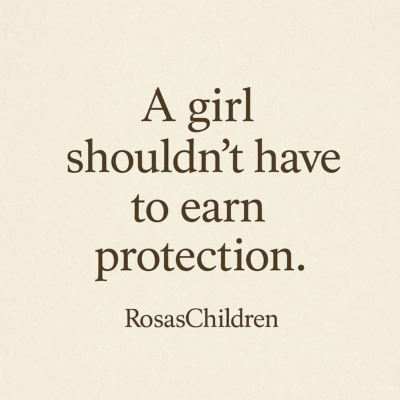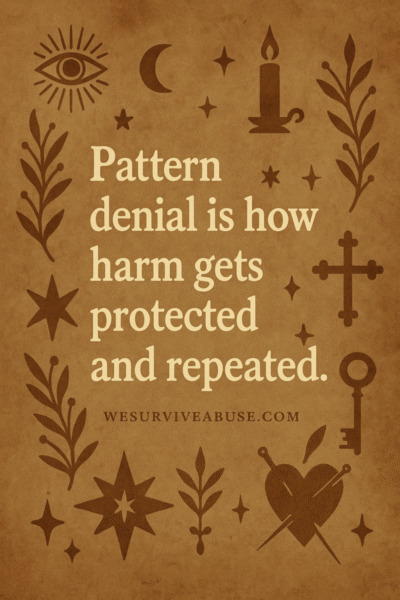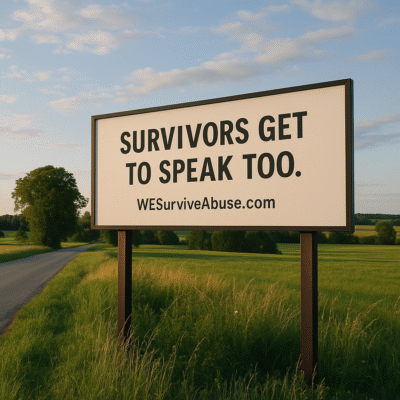Updated for 2025Updated from 2016: I was watching one of my favorite shows—Greenleaf on OWN. If you’ve ever watched it, you know

Updated from 2016: I was watching one of my favorite shows—Greenleaf on OWN. If you’ve ever watched it, you know it’s layered, dramatic, and often uncomfortably close to real life.
That night, I was tweet-watching—you know, watching the show on TV while following reactions on Twitter. A particular scene came on involving a teenage girl and a much older church leader, a man depicted as a suspected serial predator, likely in his 50s or 60s.
The setting?
His condo.
The tone?
Unsettling.
The dynamic?
Clear grooming.
Many of us tweeted about how disturbing the scene was—how hard it was to watch. Because for Survivors and advocates, it felt too real.
But what truly broke me were the tweets that followed.
People saying things like:
“She wanted it.”
“She knew what she was doing.”
“Girls these days are fast.”
Let me say this plainly: Recognizing manipulation is not the same as desiring it.
Seeing a predator’s tactics “work” does not mean a child wanted the abuse. That’s not consent. That’s grooming. That’s power and manipulation.
And we’ve seen this harmful thinking before—over and over again.
 A Question That Cuts to the Bone
A Question That Cuts to the Bone
Back in 2015, I saw a question posted on Quora that still haunts me:
“Can little girls attract rape?”
Do you feel that in your chest?
Because I do. And so many Survivors have asked themselves that exact question, in quiet moments filled with guilt, confusion, and shame.
That question doesn’t come from nowhere.
It comes from a world that teaches girls to blame themselves before anyone else.
The Lie Society Tells Us
Too many of us were told things like:
“If you hadn’t been alone with him…”
“If you hadn’t dressed like that…”
“You were just curious, weren’t you?”
“He’s a man—what did you think would happen?”
“You’re not a victim, you were fast.”
And for boys:
“You should’ve liked it.”
“You’re lucky—it was an older woman.”
“You probably turned him on.”
These are not harmless comments.
They are messages that get embedded in our spirits and spill into addictions, low self-worth, toxic relationships, anxiety, depression, and silence.
 When Survivors Speak Against Other Survivors
When Survivors Speak Against Other Survivors
Some Survivors—especially those abused in their teen years—don’t identify what happened to them as abuse. And sometimes, they speak out in harmful ways:
“I was 15 messing with a grown man. I knew what I was doing. These girls are just crying rape.”
But in my experience, these voices often come from people who:
Never received trauma-informed counseling
Had negative experiences with therapy or support services
Were silenced for so long, they disconnected from their own truth
Chose to bury the pain in order to survive
This isn’t judgment. It’s a reflection of how deep the harm goes—and how many Survivors have been left to walk alone.
Let’s Be Clear
 Sex between adults and minors is a crime.
Sex between adults and minors is a crime.
It is never the responsibility of a child or teen to protect themselves from an adult’s sexual attention. That responsibility falls squarely—and only—on the adult.
We don’t let adults hand a child alcohol or cigarettes and call the child “grown.”
We don’t hand over car keys and say, “Well, they wanted to drive.”
So why do we twist ourselves into knots to justify sexual abuse?
What We Need to Do—Right Now
We must shift the blame back to where it belongs.
✅ Stop blaming teenagers for adult crimes.
✅ Hold adults accountable—in our families, our churches, our schools, our friend circles.
✅ Create safer pathways for children and teens to come forward.
✅ Center healing and truth instead of shame and silence.
And finally, we must bury this dangerous lie:
No, children cannot “attract” rape. Ever.
 A Question That Cuts to the Bone
A Question That Cuts to the Bone When Survivors Speak Against Other Survivors
When Survivors Speak Against Other Survivors